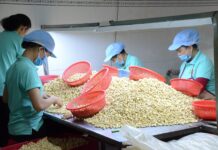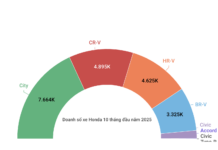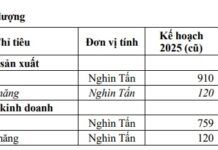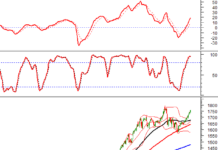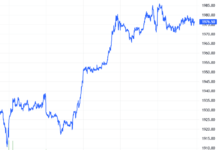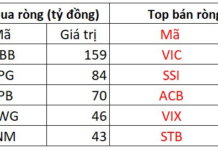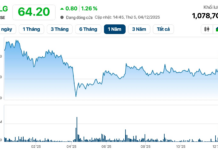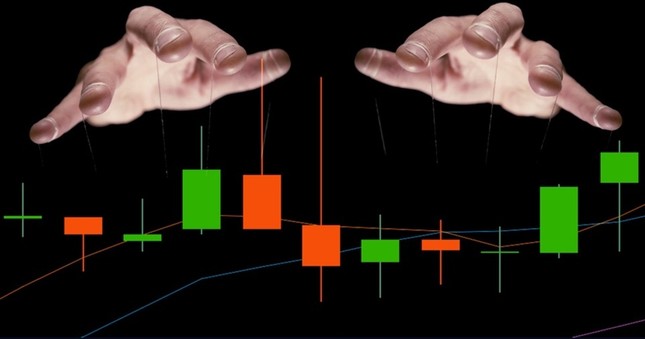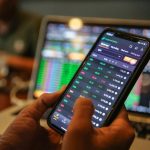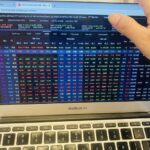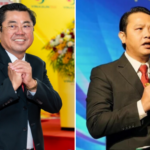The Ministry of Finance has proposed legalizing regulations on market manipulation in Decree 156, following its monitoring and inspection of transactions over time.
Specific behaviors that would be defined as manipulation include: buying or selling a dominant volume of securities at the opening or closing of the market to create a new opening or closing price for that security; placing buy and sell orders for the same security within the same trading day; or colluding to trade securities without an actual transfer of ownership.
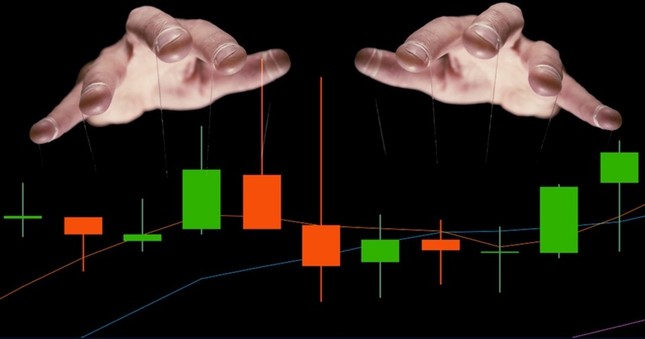
Stock market manipulation will be legalized.
Additionally, according to the Ministry of Finance, there are currently no strict regulations prohibiting insiders of public companies, securities investment companies, and mutual funds, as well as their related parties, from disclosing information about anticipated transactions. This has made it challenging to handle and prevent violations in the market. The Ministry has proposed a ban on this behavior in securities activities.
The Ministry’s draft also proposes notable content related to the responsibilities of organizations and individuals concerning documentation, reporting, professional securities investors, and securities offerings.
Regarding the definition of a professional securities investor, the draft suggests adding requirements for investors to have a minimum of two years of securities investment experience, a minimum transaction frequency of ten times per quarter in the last four quarters, and an annual income of at least VND 1 billion in the previous two years.
Previously, the 2019 Securities Law and Decree 65 raised the standards for professional investor qualifications. However, meeting these standards does not necessarily indicate an ability to assess the risks of bonds (as the regulations only consider capital, and individuals must ensure that their held portfolio has an average value of at least VND 2 billion in 180 days, excluding borrowed funds).
According to the Ministry of Finance, the private bond market is inherently a special market with high-risk levels. Participants should be limited to a small number of investors with strong financial resources, expertise, and the ability to recognize and accept risks.
However, Vietnam’s private bond market has been operating contrary to its nature. In reality, many offerings have been distributed to thousands of small individual investors, who directly or indirectly own bonds through investment cooperation agreements, repurchase agreements, and so on.
These individuals typically have low investment values and lack the experience, expertise, and ability to recognize risks.
This draft also includes some new points related to the upgrade of the stock market. Among them, clearing members include securities companies, commercial banks, and branches of foreign banks that can perform clearing and settlement of transactions in the spot and derivatives markets.
“It is necessary to study and supplement regulations to provide a full legal basis for the establishment of a subsidiary of the Vietnam Securities Depository and Clearing Corporation (VSDC) to implement the central counterparty (CCP) mechanism, ensuring the effectiveness, safety, and compliance with international practices,” said the Ministry of Finance.
These are considered important steps in addressing the issue of pre-transaction margin requirements, one of the current “bottlenecks” in the market upgrade process.
Choose stocks for “Tet” festival celebrations
Investors should consider choosing stocks in the banking industry with good profitability, healthy real estate, and abundant clean land reserves. In addition, the group of stocks in infrastructure investment, iron and steel, and construction materials should also be considered.

